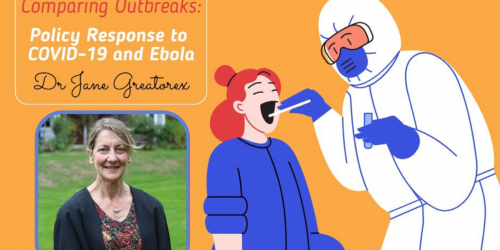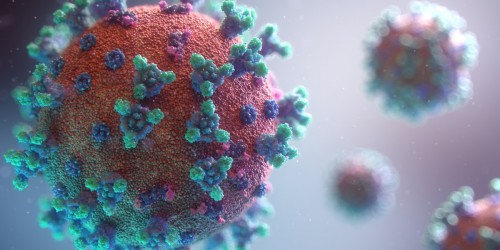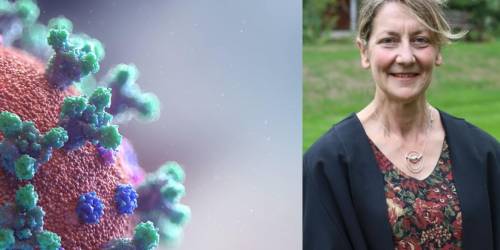
What role do politics, diplomacy and science play in the response to health crises?
Dr Jane Greatorex examines the policy response to Covid-19 and Ebola
Lucy’s Senior Tutor and virologist ensures accuracy of the science behind the advice
BBC Bitesize is a free online study support resource designed to help with learning, revision and homework. Bitesize provides support for learners aged 5 to 16+ across a wide range of school subjects. It also supports children and young people's wellbeing and career choices.
To educate younger people and also help and encourage younger people to stay as safe as possible now and in the future, the editorial team, with help from Jane to ensure accuracy of the science, have provided some advice with comprehensive scientific explanations about Coronavirus. Jane has contributed to many publications since the outbreak of Coronavirus including The Guardian, The Telegraph, The Daily Mail and the Cambridge Independent, to ensure that information about the disease and how to stay safe is accurate.
The advice from Bitesize notes that washing our hands more regularly and staying a safe distance from other people while outside have become part of our lives in ways we would never have expected. These continue to be important things to do as they can help to stop the spread of Covid-19. The information then explains exactly why soap is best for washing hands, and how it breaks down the fatty envelope around a virus, causing it to break down. It also details how a virus behaves on different surfaces, and why social distancing works. Read on to find out about the ‘science behind the advice’.
Washing with soap and water
Even in the weeks before people in the UK were told to stay at home, we were urged to wash our hands thoroughly with soap and water for 20 seconds.
It became the subject of internet memes, with people suggesting the best bursts of popular songs which covered those required 20 seconds of scrubbing.
But why is traditional soap and water so much more effective at stopping Covid-19? The answer lies in the molecules that make up the building blocks of soap and how they react when coming into contact with the virus.
The Covid-19 virus is held together by a fatty envelope, which can only be seen through a very high powered microscope. Without the envelope, the virus would fall to pieces and no longer be active (we can’t really say it dies, as viruses aren’t technically alive in the first place). The molecules in soap begin to dissolve this membrane on contact, but it takes 20 seconds to get the job done.
That’s why people are being urged to wash with soap and water for the same time it takes to sing Happy Birthday twice. In that vital, short, space of time, the soap is sending the virus packing. And any block of soap will do the job. Hand sanitising gels can also work, but soap is the more effective.
Surfaces
The reason we need to keep our hands so well scrubbed is that Covid-19 can be transferred from them to other surfaces.
Research has been going on since the outbreak to see which surfaces the virus remains active on for the longest.
Studies show that the virus, carried within droplets produced by people coughing, lasts longer on hard surfaces. These include:
Cardboard: The virus can last for up to 24 hours on here.
Plastic and stainless steel: Up to two or three days.
Copper: Up to four hours.
As time progresses, the virus becomes less active (able to infect you). It’s recommended that objects which get a lot of use, such as door handles and work surfaces - anything made up of mainly plastic and/or stainless steel - are regularly disinfected to keep them as virus-free as possible.
Social distancing
You’re likely to have heard the phrase ‘two metres’ more than ever in the past month or so. It’s for good reason.
Covid-19 spreads through droplets when we cough. If someone with the virus coughs while close to somebody else, there’s a risk of passing it on. If we all keep at least two metres from people (this is especially important when we’re out in public, such as a trip to the supermarket), the virus has less chance of spreading. This is because any droplets containing the virus are highly unlikely to infect anyone from that distance.
Need an idea of what two metres looks like? Think:
However, the best form of social distancing is to stay indoors. It may get frustrating at times, but it’s the safest way to make sure the virus doesn’t spread any further. Remember to only go out if it’s for your daily exercise period, or for important food and medical supplies.

Dr Jane Greatorex examines the policy response to Covid-19 and Ebola

Dr Jane Greatorex, Lucy’s Senior Tutor and virologist, explains why infection rates vary

Over 100 participants joined our Senior Tutor in latest Lucy’s virtual event